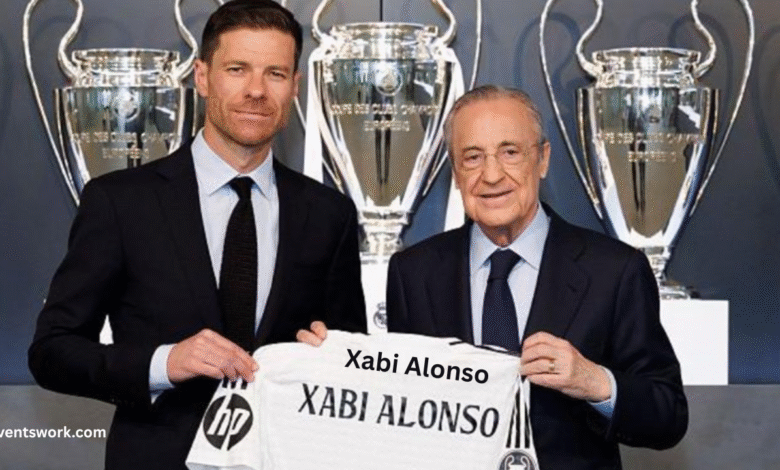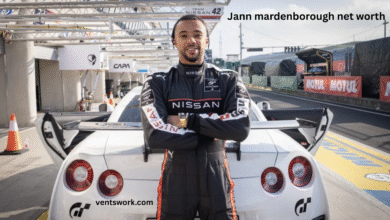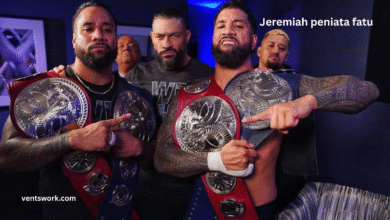Xabi Alonso: The Maestro of Midfield and the Making of a Football Icon

In the realm of football, few players have exemplified grace, intelligence, and consistency quite like Xabi Alonso. Known for his impeccable passing range, composure under pressure, and tactical awareness, Alonso carved out a career that placed him among the game’s most elite midfielders. With a footballing journey that spans some of Europe’s biggest clubs and international glory with Spain, his legacy is not just one of silverware but also of elegance and influence on the pitch.
Alonso’s footballing story isn’t just about playing for top-tier teams—it’s about adapting to diverse playing styles, thriving under pressure, and constantly evolving. Whether it was the physical intensity of the Premier League, the tactical nuances of La Liga, or the technical discipline of the Bundesliga, Xabi adapted with ease and often excelled beyond expectations. He was more than a deep-lying playmaker; he was the heartbeat of every team he played for.
This article delves into the multi-faceted life of Xabi Alonso, tracing his humble beginnings, storied playing career, transition into management, and lasting impact on the beautiful game. From his childhood in Spain to lifting the World Cup and now guiding teams from the touchline, Alonso’s story is one of talent, intelligence, and unyielding passion for football.
Early Life and Football Beginnings
Born in the picturesque town of Tolosa in the Basque Country on November 25, 1981, Xabier Alonso Olano was destined for greatness. Football was in his blood—his father, Periko Alonso, was a former professional who played for Real Sociedad and FC Barcelona. Growing up in such an environment gave young Xabi a front-row seat to the game’s intricacies, which would later define his cerebral style on the pitch. He often played in local fields with his brother Mikel, who also pursued a football career, and the two sharpened their competitive edge early on.
Xabi’s early football development began with Antiguoko, a local youth club known for producing skilled players. It was here that he honed the technical abilities and passing precision that would become hallmarks of his game. His leadership qualities also began to surface, and by the time he joined Real Sociedad’s youth academy, his potential was clear.
After progressing through the ranks, Alonso made his first-team debut for Real Sociedad at just 18. However, his early days in senior football included a pivotal loan to SD Eibar, a second-division side, where he learned the physical demands of professional football. That experience proved invaluable, giving him both resilience and humility—qualities that would become crucial throughout his career.
Club Career: A Journey Through Europe’s Elite

Real Sociedad: The Launchpad
Alonso returned from his loan and quickly became the linchpin of Real Sociedad’s midfield. By the 2002–03 season, he captained the team to a stunning second-place finish in La Liga, nearly dethroning Real Madrid. His ability to dictate play from deep and deliver long-range passes made him a standout in Spanish football, drawing attention from clubs abroad.
Liverpool FC: European Glory
In 2004, Alonso joined Liverpool under manager Rafa Benítez. It was in England where he became a global name. His debut season ended with one of the most iconic matches in football history—the 2005 UEFA Champions League final in Istanbul. Alonso scored the equalizer as Liverpool came back from 3–0 down to win on penalties against AC Milan. His intelligent play, vision, and unshakable composure made him a fan favorite and an indispensable asset at Anfield.
Real Madrid: Galáctico and Game-Changer
In 2009, Alonso returned to Spain, signing for Real Madrid. Under managers like Manuel Pellegrini and José Mourinho, he became the tactical engine of the team. His presence brought balance to a star-studded lineup, allowing attacking players to shine while he anchored the midfield. With Los Blancos, he won La Liga, Copa del Rey titles, and the UEFA Champions League in 2014 before moving to Germany.
Bayern Munich: German Precision
At Bayern Munich, Alonso was handpicked by Pep Guardiola for his tactical mind and leadership. Despite joining at 32, he remained pivotal in the club’s domestic dominance. He brought calm and control to the midfield, showcasing that football intelligence can outlast physical decline. Alonso retired in 2017, having won league titles in Spain, England, and Germany.
International Career with Spain
Alonso made his debut for Spain in 2003 and was a crucial part of the team that redefined international football. He played in a midfield trio that included Andrés Iniesta and Xavi Hernandez, forming the backbone of Spain’s tiki-taka style. His deep-lying role allowed others to flourish while he quietly controlled the tempo and snuffed out counterattacks.
Spain’s golden era began with the Euro 2008 victory, where Alonso was instrumental off the bench. At the 2010 FIFA World Cup, he was a xabi alonso starter and a vital cog in the team that lifted the trophy in South Africa. His defensive contribution and pinpoint distribution often went unnoticed but were essential in keeping possession and relieving pressure.
At Euro 2012, Alonso reached new heights. His standout moment came in the quarterfinals against France, where he scored both goals in a 2–0 win. It was a fitting tribute to his 100th cap and a reminder of his big-game temperament. Alonso retired from international duty in 2014 with 114 caps, having left an indelible mark on one of football’s most dominant dynasties.
From Midfield General to Managerial Mind
Transitioning into coaching after retirement, Alonso took charge of Real Madrid’s youth team before moving to manage Real Sociedad B. There, he emphasized structured possession, high pressing, and spatial awareness—principles borrowed from his former coaches like Benítez, Mourinho, and Guardiola.
In 2022, he took over as head coach of Bayer Leverkusen. Though the task was daunting, Alonso quickly revitalized the squad with bold tactics and xabi alonso clear communication. He introduced a possession-based system mixed with fast transitions, leading Leverkusen to a Bundesliga resurgence and a strong European campaign.
With his tactical intellect and calm demeanor, Alonso is now being touted as the next great manager in European football. Rumors link him to Liverpool, Bayern, and even Real Madrid. Should he accept one of these roles, he could follow in the footsteps of other legendary player-turned-managers—and perhaps surpass them.
Playing Style, Influence, and Legacy
Xabi Alonso wasn’t just a midfielder; he was a metronome who dictated the rhythm of every game. His long-range passing was surgical, often switching play with a single touch. But Alonso was also defensively sharp, positioning himself effectively to intercept passes and protect the backline. His composure under pressure allowed him to excel in high-stakes environments.
Beyond his playing ability, Alonso’s professionalism and humility won the respect of teammates and opponents alike. Players like Cristiano Ronaldo, Steven Gerrard, and Philipp Lahm praised his intelligence and unselfish play. His legacy lives on in modern midfielders like Toni Kroos and Rodri, who mirror his style and discipline.
Off the pitch, Alonso maintains a low profile. Fluent in multiple languages, he is articulate and thoughtful in interviews, reflecting the same intelligence he showed on the field. Whether it’s in style, speech, or substance, Alonso remains a class act—an ambassador for football both past and future.
Conclusion
Xabi Alonso’s journey through football is one of elegance, intelligence, and impact. As a player, he excelled in every league he entered and contributed immensely to club and country. Now, as a coach, he is crafting a new legacy—one that builds on his understanding of the game and transforms teams into cohesive units.
Alonso’s story serves as a blueprint for aspiring footballers: talent paired with humility, intelligence, and relentless pursuit of excellence. From the Basque Country to the grandest stages in Europe, Xabi Alonso’s legacy is etched in football history.
FAQs
Q1. What teams did Xabi Alonso play for during his career?
Real Sociedad, Liverpool FC, Real Madrid, and Bayern Munich.
Q2. What titles did Xabi Alonso win with the Spanish national team?
He won UEFA Euro 2008, the 2010 FIFA World Cup, and Euro 2012.
Q3. When did Xabi Alonso retire from professional football?
He retired in 2017 after completing his final season with Bayern Munich.
Q4. What is Xabi Alonso’s managerial style like?
Possession-based with tactical flexibility, often incorporating pressing and structured build-up play.
Q5. Is Xabi Alonso expected to manage a top European club soon?
Yes, he is frequently linked with high-profile clubs like Liverpool, Real Madrid, and Bayern Munich.
Q6. Why is Xabi Alonso considered one of the best midfielders of his generation?
Due to his vision, passing range, composure, tactical awareness, and leadership across multiple top leagues.
Q7. How did Xabi Alonso contribute to Spain’s golden era in football?
He was a key part of the midfield engine, enabling Spain’s tiki-taka style and adding defensive balance.
Q8. What languages does Xabi Alonso speak fluently?
Spanish, English, and German.
Q9. What is Xabi Alonso’s influence on modern football tactics?
His deep-lying playmaker role influenced the tactical evolution of midfield positioning and tempo control.
Q10. Has Xabi Alonso won any individual awards during his career?
While not known for individual accolades, he was often included in UEFA Teams of the Year and various domestic best XI selections.
You May Also Read: https://ventswork.com/kennedy-funding-lawsuit/



